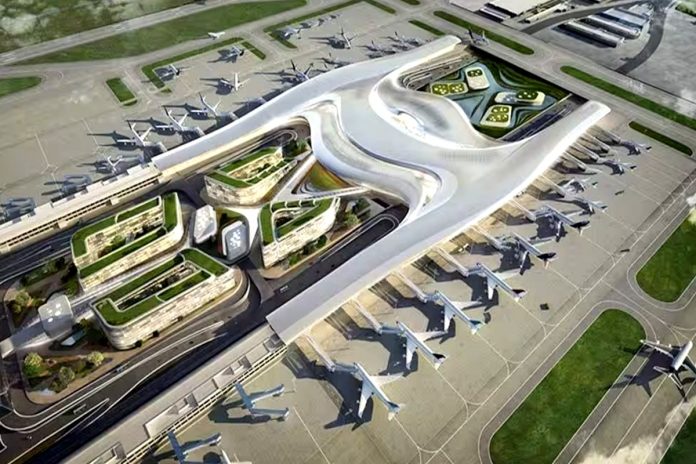Navi Mumbai International Airport (NMIA) is set to achieve a major milestone with the first trial landing of an aircraft scheduled for 5 October. The landmark event will see the participation of Prime Minister Narendra Modi, who is expected to attend the trial run.
For the trial landing in October, two aircraft will be used: the C-130J, a four-engine turboprop military transport aircraft, and the Sukhoi Su-30, a twin-engine super manoeuvrable fighter aircraft. These advanced aircraft will demonstrate the airport’s runway capabilities.
The airport, which has been under development for several years, aims to kick off domestic operations by March 2025, followed by international services in June 2025.
Sanjay Shirsat, the newly appointed chairman of the City and Industrial Development Corporation of Maharashtra (CIDCO), recently conducted a site inspection at the airport. He was joined by CIDCO vice chairman and managing director Vijay Singhal, along with officials from the Adani Group, which is overseeing the construction of the massive infrastructure project. CIDCO holds a 26 per cent stake in the NMIA project, reports Hindustan Times.
Pre-development work at the site has been completed, and construction is in full swing. Last month, the Airports Authority of India (AAI) successfully completed the Instrument Landing System (ILS) testing at NMIA, marking a crucial step in ensuring the airport’s readiness.
The ILS is used to guide aircraft during landing, especially in low-visibility conditions. Following this, a report was submitted to develop the airport’s instrument approach procedure, a key step before obtaining the necessary licensing and approvals for the runway.
Navi Mumbai International Airport
The Navi Mumbai International Airport, spanning an area of 1,160 acres. The airport project comes with a total estimated cost of Rs 16,700 crore. It will be equipped with two runways positioned 1.55 kilometres apart from each other.
NMIA, which will be the second airport in the Mumbai Metropolitan Region (MMR), will address the capacity constraints at Chhatrapati Shivaji Maharaj International Airport.
The new airport would shake up the demand-supply dynamics by adding 40 per cent more passenger handling capacity overnight to the MMR region. Conceived in 1999, the work of Navi Mumbai airport started in 2017.
During its initial phase, the airport will have a capacity of 20 million passengers per annum and 0.5 million metric tonnes of cargo per year.
The first and second phases will feature one runway, one terminal building, and a passenger capacity of 20 million. The subsequent phases 3, 4, and 5 will introduce a second runway, four additional terminals, and an increased passenger capacity of 90 million.


